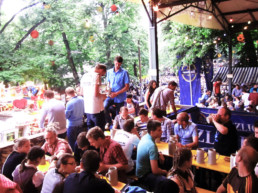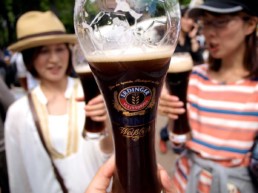During my first visit to Erlangen five years ago I remember being struck with how vibrant and youthful a town it was. At the time, I was visiting a friend who was taking me to the annual Bergkirchweih, a beer festival that rivals any other in Germany. Though that weekend was mostly spent throwing back steins at the festival grounds, the brief glimpses I caught of the city intrigued me, and I’ve been looking for an opportunity to return ever since.
Although it often finds itself in the shadow of its large neighbour Nuremberg, Erlangen is a first rate city on its own. The renowned university attracts students in droves, making the population a relatively young one. Erlangen is also a hub for medicine, with a large healthcare industry that employs nearly a third of its residents. And its significant beer tradition has lead to a culture of enjoying and celebrating beer, which is something I think we can all get behind.
Exploring the beer heritage and brewing culture in Franconia through its towns is what brought me back to Erlangen. Though this time around, it wasn’t going to be all about beer – I was determined to gain a deeper understanding of the town through its history, and it was more interesting than I imagined all those years ago. If you’re heading to Erlangen, here’s a comprehensive guide on its historical sites, beer experiences, restaurants and bars.
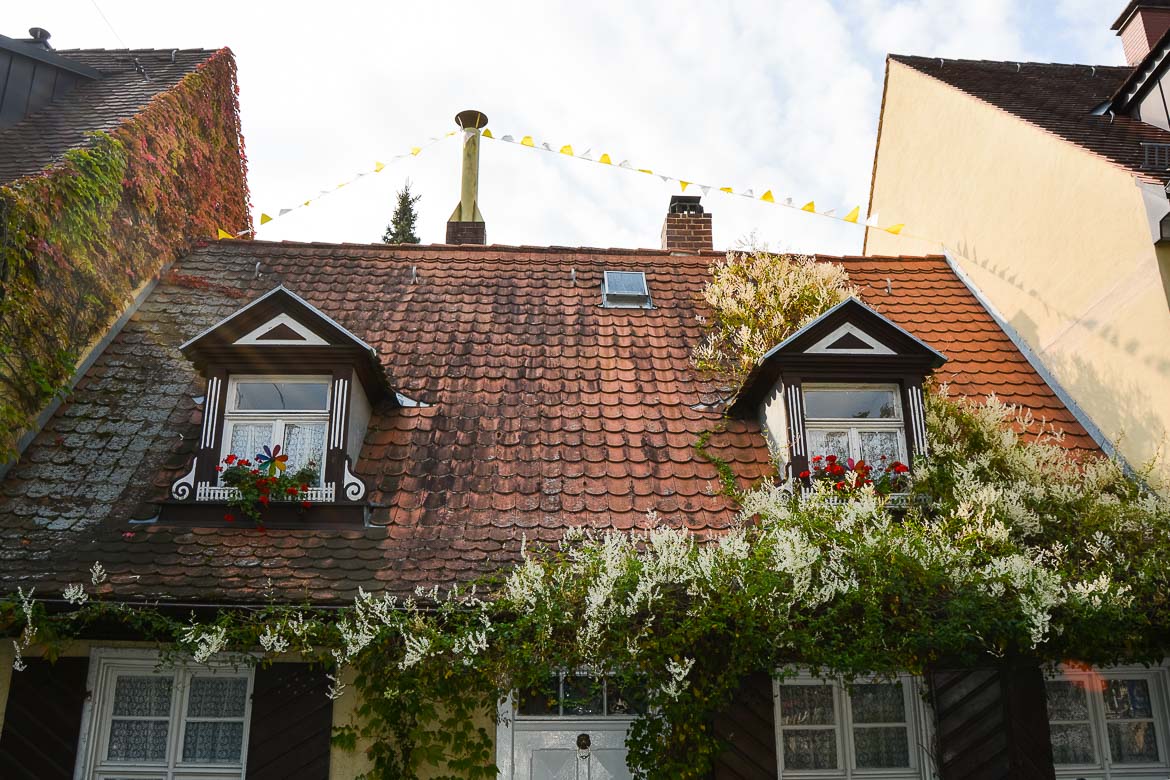
What to See & Do in Erlangen
Tour the Town
Erlangen is a medieval city though has many striking Baroque-style buildings around town. When the Huguenots were exiled from France in the 17th century, Erlangen opened its doors, welcomed them in, and created the ‘New Town’ for them to settle. This early immigration of the Huguenots has led to lasting influence in the design and architecture of the town that differentiates Erlangen from the rest of Franconia and Bavaria.
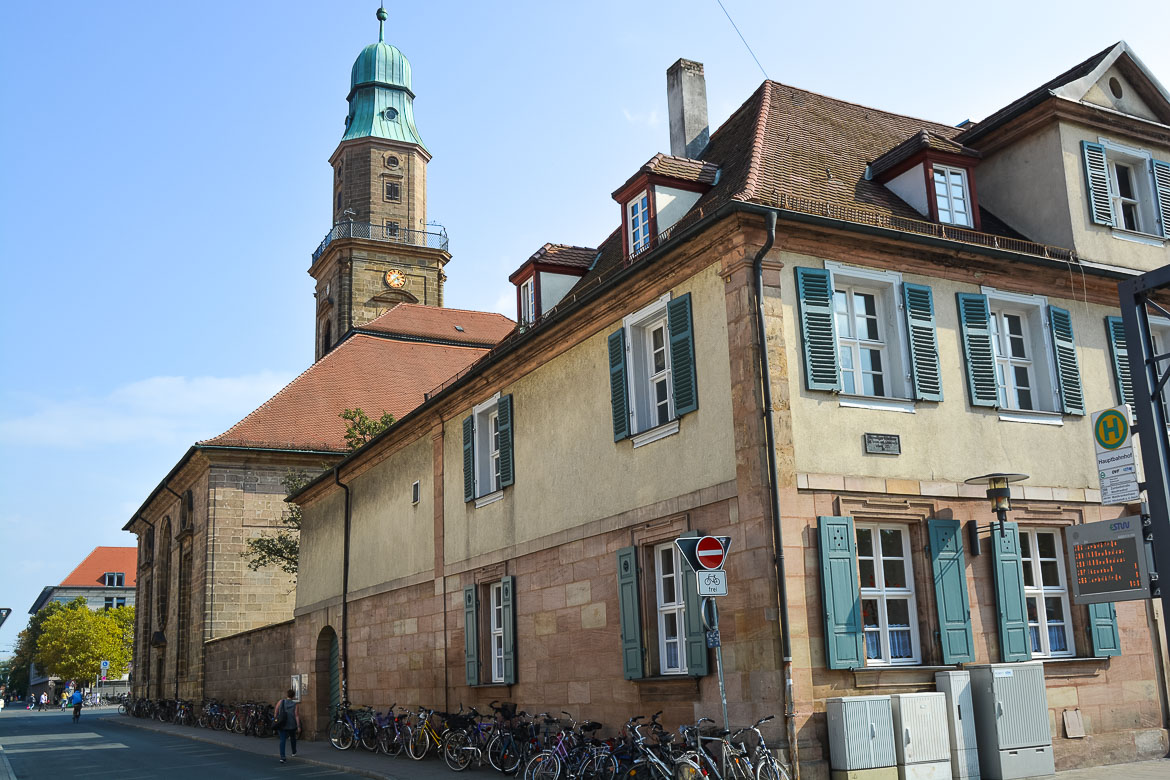
There are plenty of historically significant and notable sights in Erlangen throughout the Old and New Towns: the first Huguenot Church outside of France, which was constructed shortly after they settled in the town; the former administrative building and town hall Palais Stutterheim; the Markgrafenschloss, a Baroque palace originally built for the Margrave but now used by the University; the Old Town Church, which was constructed in the early 18th century but a church has been on that site since 1288, and; the Altstädter Rathaus, or Old Town Hall.

Erlangen’s tourism centre has self guided tours available, which can be accessed either online or an audio guide through your mobile phone. They also offer guided city tours for groups starting at 90€, like the wonderful one we had with Mrs. Gisella Schütt.
Get Outside
Perhaps the most beloved legacy of the Huguenots are the large open squares around Erlangen that are reminiscent of French towns. The most idyllic include the Marktplatz, Schlossplatz, Altstädter Kirchenplatz, Hugenottenplatz, and Bohlenplatz. These squares are a spot for residents to congregate, with cafes and restaurants lining the perimeters and events popping up throughout the year. During the festive season, Marktplatz is the location of Erlangen’s Christmas market.
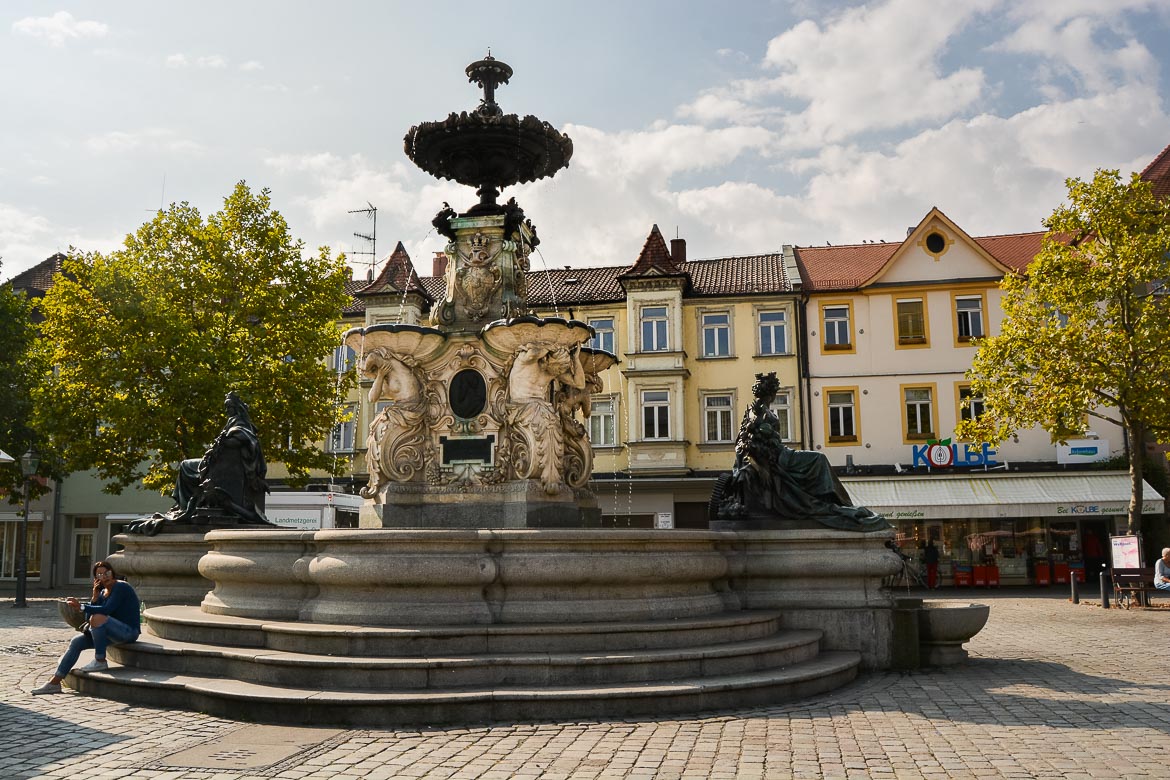
The Schlossgartens are the gardens located just behind the palace. These were envisioned to mimic Versailles and include a variety of plants and flowers, a central fountain, and a brightly coloured, rococo influenced Orangery. The large lawn is a popular spot for lounging in warm weather.
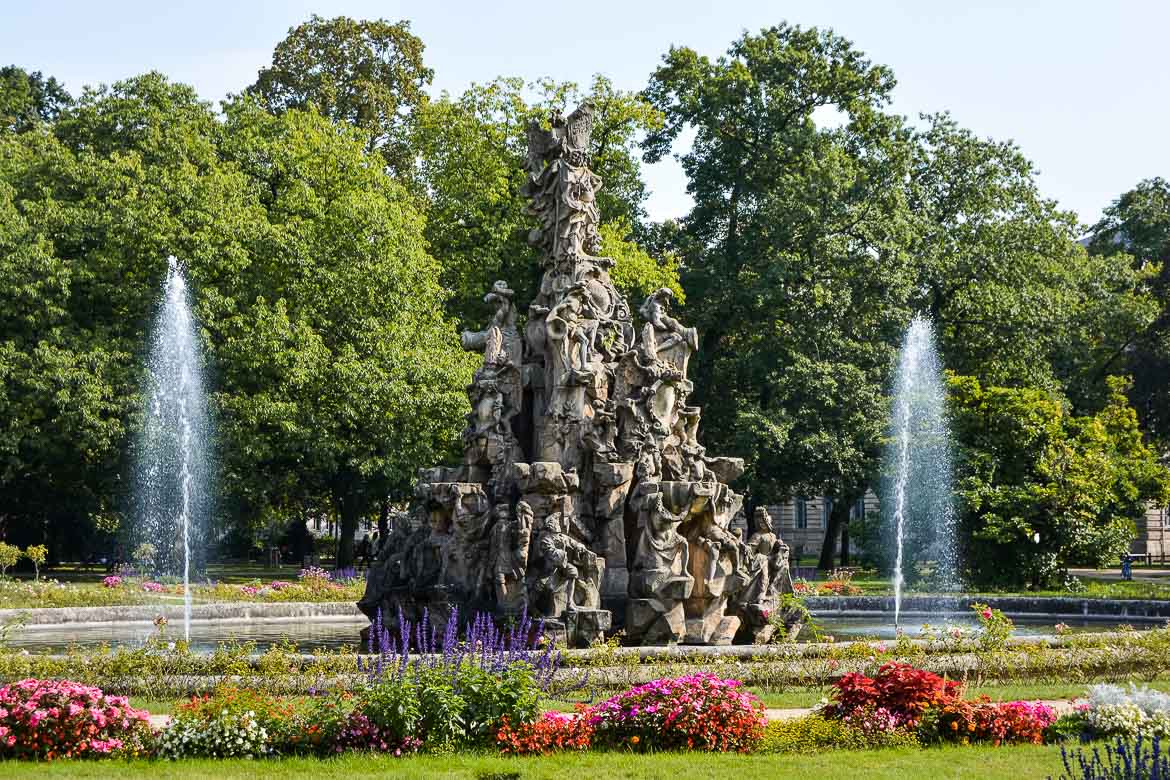
Belonging to the University, the Botanical Gardens offers a peaceful escape in the middle of town. Opened in 1747 Erlangen’s botanical gardens feature a diverse selection of plants from various ecosystems, including a large greenhouse with tropical plants. The gardens are free for visitors.
Beer
Beer has always been intwined in Erlangen’s history. By the mid 19th century, Erlangen had an astonishing 18 breweries despite a small population. At its brewing heyday, the city was the largest exporter of beer in Bavaria, increasing the notoriety of Erlangen beers across the region and country.
The Bergkirchweih is a beer festival held at the original castle’s hill, which is where stone cellars were carved to store beer centuries ago. The ‘Berg’, as locals call it, has been held in Erlangen since 1755 making it the oldest beer festival in the world, and 55 years older than Oktoberfest. Today, over a million people experience the festival and drink Berg beer, a special brew made by local breweries only at this time of the year. A number of kellers begin at the bottom of the hill and extend upwards on raised platforms. The Berg festival takes place over 12 days each summer.
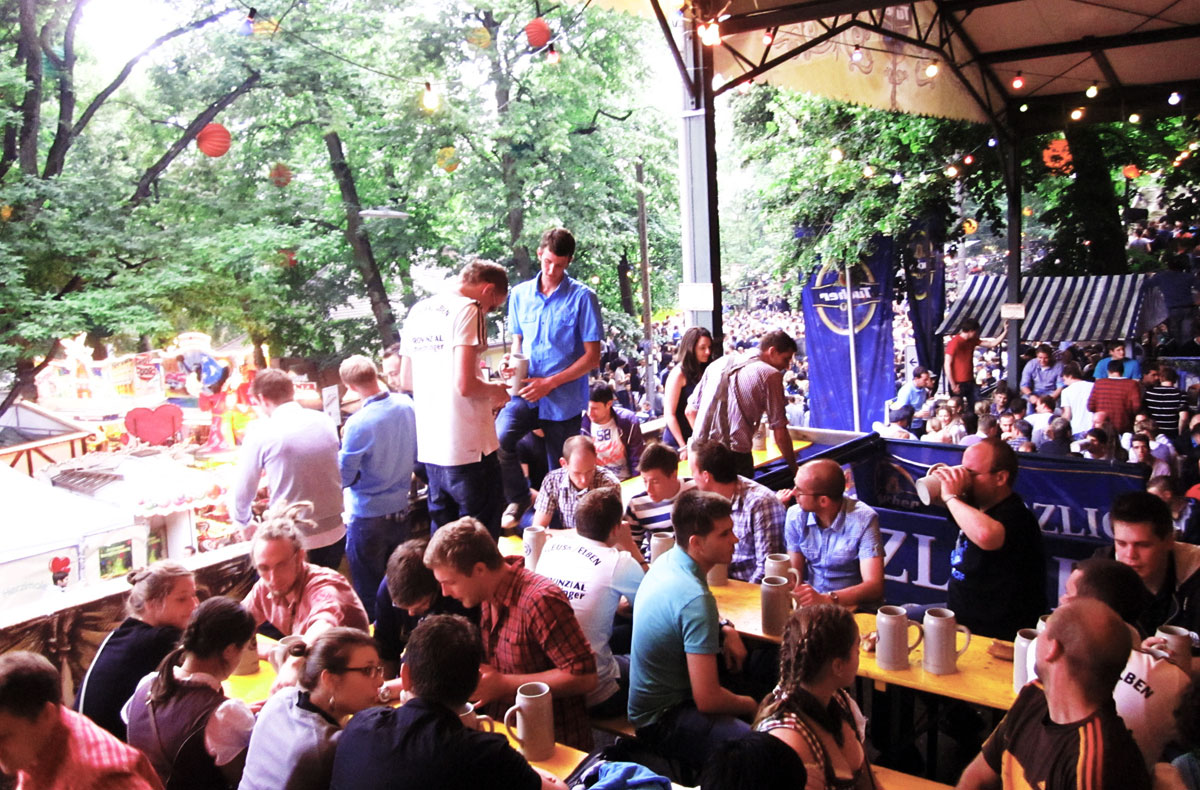
The tourism agency has a great self-tour highlighting Erlangen’s Beer History. You can download the audio guide, which will direct you to the various stops and provides context to what you’re looking at. It starts at Kitzmann brewery, who’s roots date back to 1712, and guides you to former industrial breweries, iconic pubs, and historic sites culminating at the impressive site of the Bergkirchweih festival. The entire route is two kilometres and easily walkable.
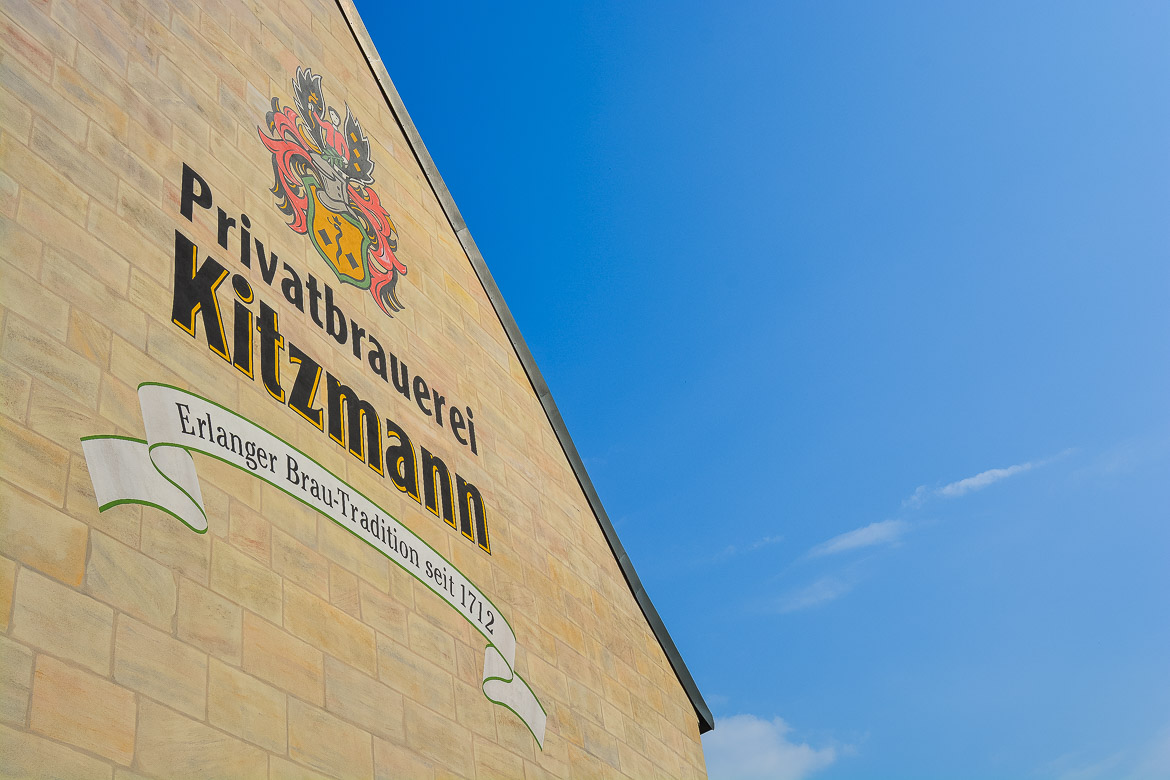
Another beer tour called the Brewery Path of Erlangen was established for the 250th anniversary of the Bergkirchweih festival and guides visitors to the former breweries that gave Erlangen such a significant reputation in beer. A few of the stops overlap with the Beer History tour above, but the full route is quite easy to complete so you won’t be going out of your way. [Download this PDF from the Erlangen Tourism board and head to page 29 for the map and route]
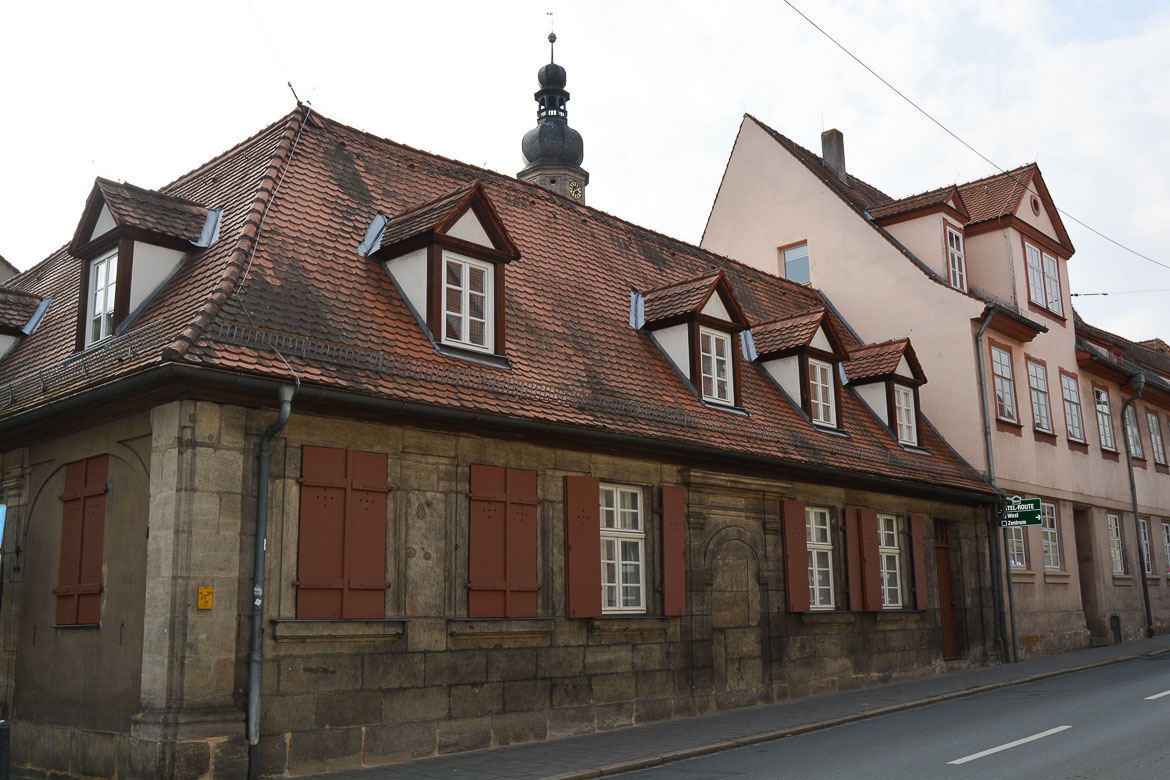
Learn
To dive deeper into Erlangen’s rich history head to the Stadtmuseum, which is located in the Old Town Hall. The museum provides a comprehensive overview of Erlangen’s origins touching on prehistoric times, the Middle Ages, and the Huguenots integration into the city.
Erlangen’s art gallery, the Kunstmusuem, focuses on local and regional art produced after 1945. Several independent collections are exhibited throughout the year.
The Palais Stutterheim is the site of the Kunstpalais, a space devoted to contemporary art in the city. The relatively new gallery opened in 2010, and showcases various temporary exhibits throughout the year with a focus on linking art to international discourse.
Where to Eat & Drink in Erlangen
Kitzmann is the longest continuously running brewery in town with over 300 years of production. The brewery’s restaurant Kitzmann Bräushänke serves up hearty local fare in a nostalgic setting. Wood accents, plaid banquets, a collection of steins and murals of notable residents set the scene for a delicious meal alongside Kitzmann’s award winning beers. If that isn’t appealing enough, there’s a great beer garden outside for warmer days.
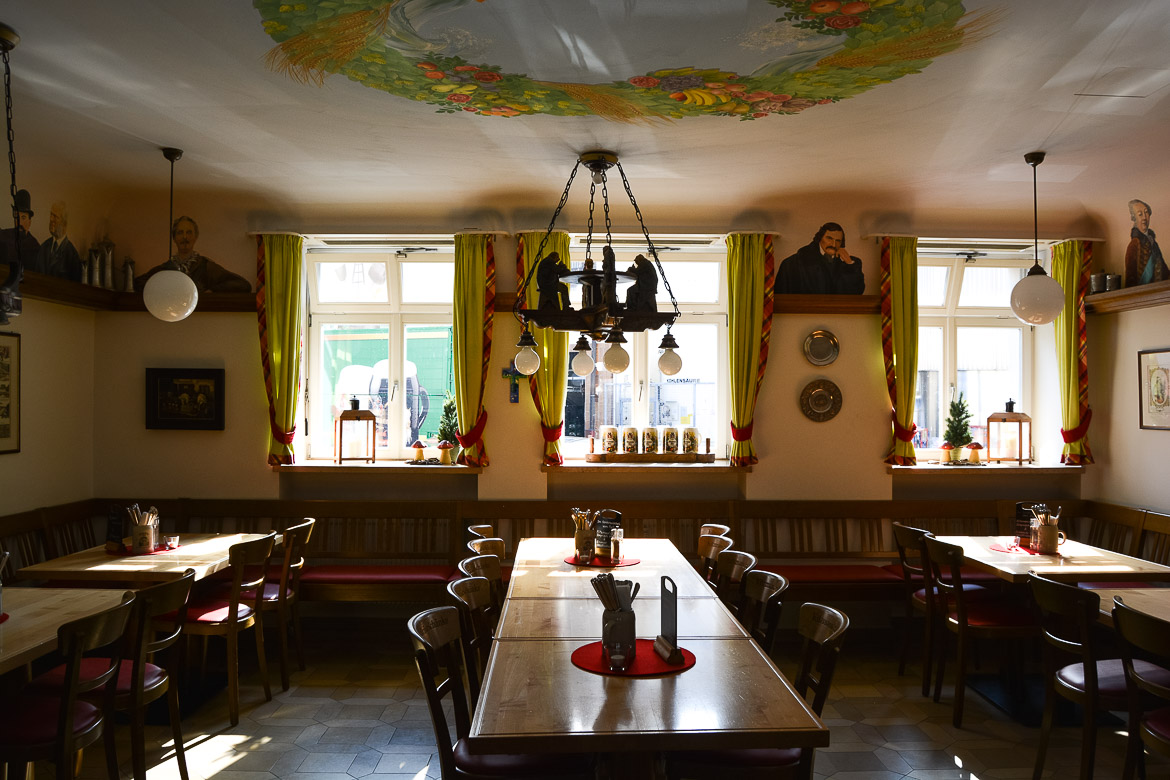
Steinbach Bräu is a brewery and brewpub located right in the centre of town. The brewery started making beer in 1653 yet shut down operations in the 1920s. About 70 years years later, Steinbach’s great-grandson has begun brewing beer on site once again and has added an inviting restaurant and pub that’s popular with locals, particularly during summer months when its beer garden is regularly packed.
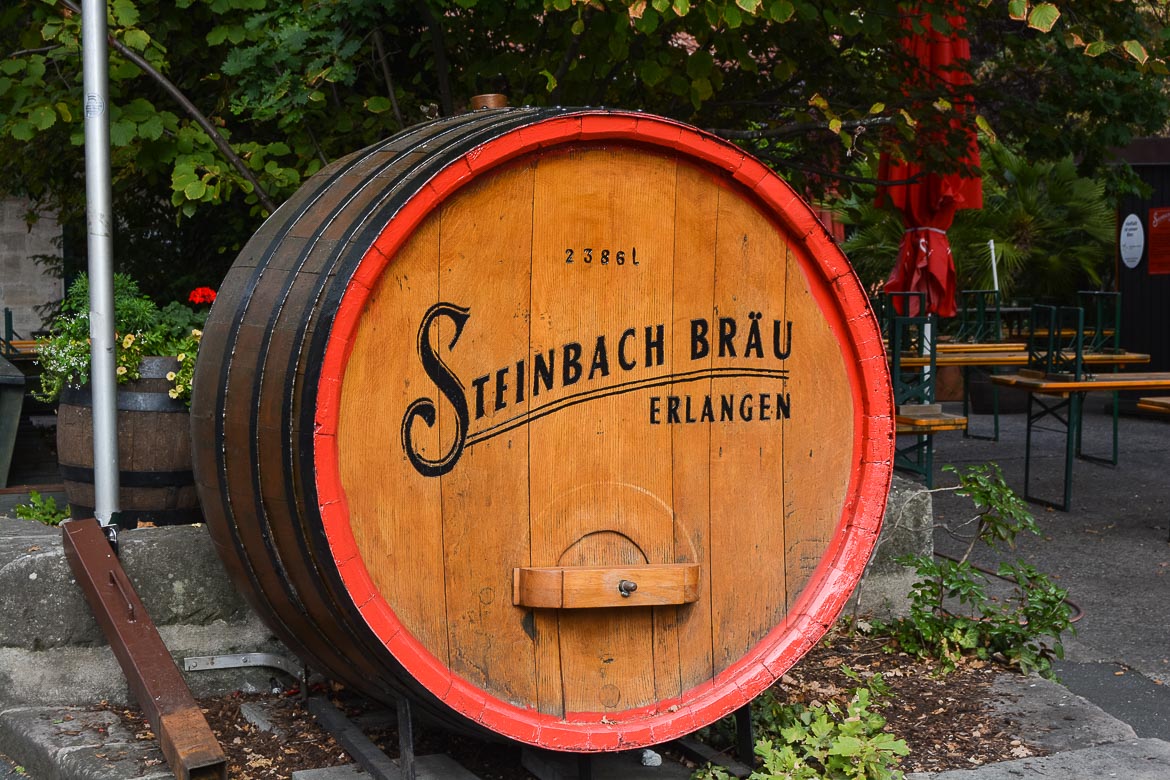
Head to local favourite Alter Simpl in the town centre, a staple in Erlangen since 1903. The decor, which doesn’t appear to have changed much in the last hundred years, is ultra charming and the fully functioning wood burning stove adds to the ambiance. Great food and stellar service await you.
For authentic Napoli style pizza head over to Rosso Fuoco. A variety of fresh topping combinations are available, all of them delicious, and served on thin, chewy crust just like in Naples. A couple of antipasti options are on offer but save room for the main attraction.
A handful of cellars are situated at the base of Erlangen’s Castle Hill, which are visited every year for the famous Bergkirchweih festival. Entla’s Keller is the oldest cellar and the only one that’s open as a beer garden outside of the festival from April to September. You can kick back with a litre stein of Kitzmann beer and enjoy classic beer garden food.
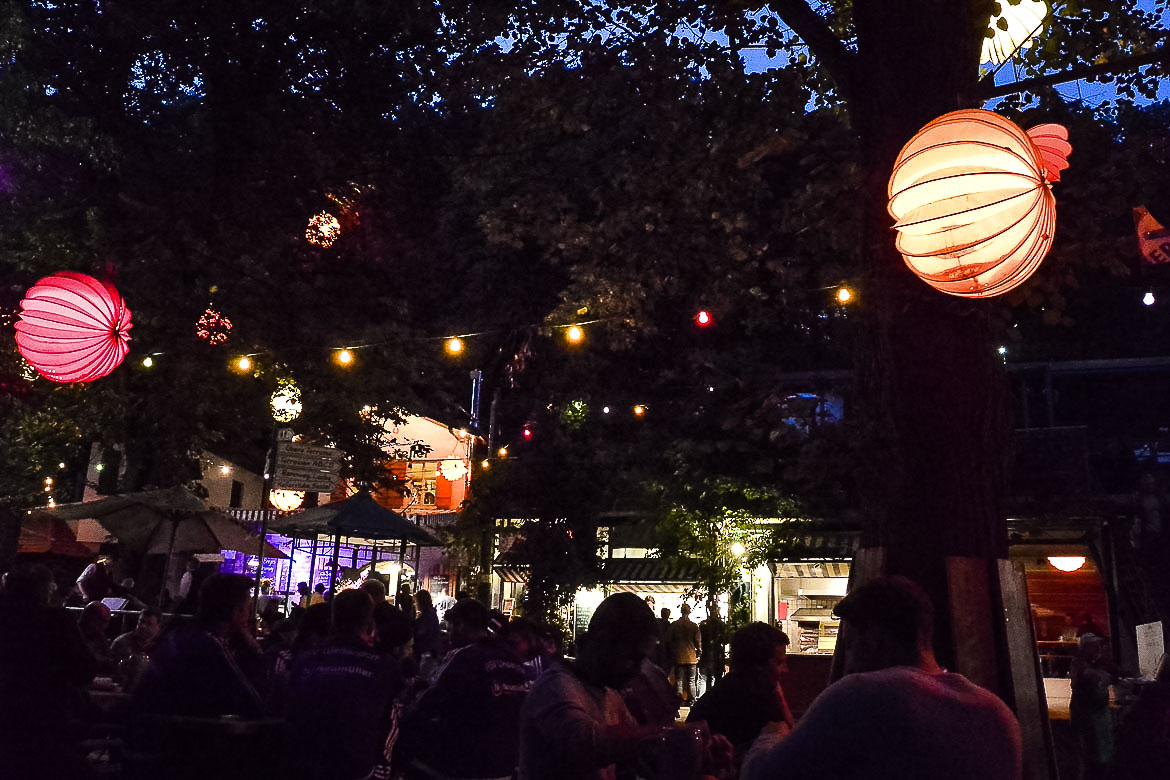
For a stiff drink check out Havana Bar, a prohibition era type of spot in the centre of town. The pro mixologists behind the bar will whip you up a well executed classic like an Old Fashioned or Negroni, or perhaps something more inventive if you wish. While the menu of gourmet hotdogs doesn’t seem like it would fit with the vibe, it totally works – and makes a delicious snack.
Where to Stay in Erlangen
For a quiet hotel in a convenient setting I would recommend Quality Hotel. This hotel is the closest accommodation to the Berg festival and Entla’s Keller, with a nice walk to the centre of town. Rooms are pleasant and comfortable, and the hotel’s buffet breakfast features a good selection of hot and cold foods.
All Erlangen Travel photos by Lauren Barth.
Departful was a guest of Franken Tourismus and Erlangen Tourismus, but all recommendations and opinions are our own.
Make your next trip the best one.
Departful is a full service travel agency creating truly exceptional travel experiences that are 100% personalized to you. Wherever you’re going, whatever your interests, we help you plan the perfect trip.
Lauren
Lauren co-founded Departful in 2012 and is the Managing Director of Departful Media. Since then she has worked between North America and Europe and has published content in partnership with a variety of tourism boards and businesses based around the world. Lauren is currently based in Toronto, Canada.


